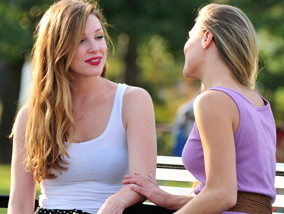Can you help us improve social care in the UK?

Social care service users can be more vulnerable to poor mental health than the rest of the population
For this reason, it's vital that the social care workforce understands the importance of promoting good mental health and wellbeing.
The Mental Health Foundation has been asked to collect the views of people who use these services about how social care workers can help people's mental health and wellbeing, so we're writing to all our supporters to ask whether you, or anyone you know, has experience of receiving social care support and would be willing to answer a few questions about it.
If you receive support or help from an organisation that provides social care, or you are a relative or friend of someone who does, we would be very grateful if you could complete a short online survey. It should take no more than 10 minutes of your time.
If you know someone who might be interested in the survey, please forward this email to them. All responses will be handled confidentially.


